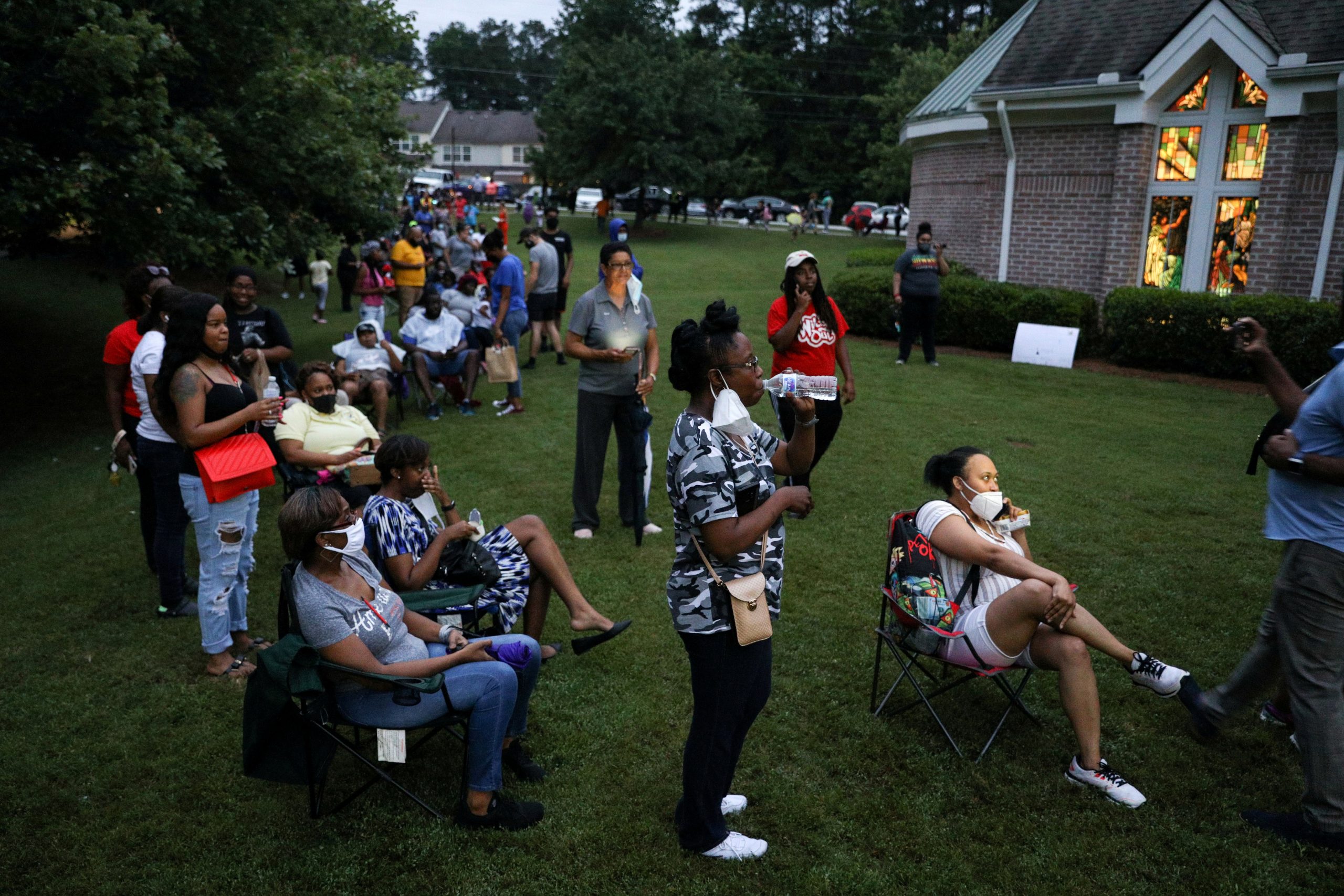After messy primaries marred by long lines and chaos earlier this year, Wisconsin and Georgia held another round of elections on Tuesday with fewer reported problems – but enough glitches to raise warning flags for the real test in November.
Both states made adjustments after the earlier contests, and neither Georgia nor Wisconsin saw a widespread repeat of the long voter lines and multi-hour waits that were prevalent earlier in the year.
But in relatively low turnout primaries for congressional, state and local offices, there were enough problems to sow doubts about the hurdles voters might face when they try to cast ballots on Nov. 3 amid the coronavirus pandemic, voting rights groups said.
“We’re not seeing the long lines, but we still have a lot of issues to work through before November,” said Aklima Khondoker, Georgia state director for the voting rights group All Voting is Local.
Election officials in Wisconsin and Georgia, both political battleground states that will be crucial in the Nov. 3 presidential election, increased the number of polling sites on Tuesday in areas that saw most of the earlier problems.
In Milwaukee, Wisconsin’s biggest city, polling stations jumped from five in the April 7 primary to 168. In Georgia’s Fulton County, home to Atlanta and site of the biggest delays in the June 9 primary, polling sites rose from 164 in June to 174 in August.
In Georgia, where problems with new voting machines contributed to the mess in June, hundreds of technicians were trained on the machines and assigned to polling sites in the biggest counties. In-person training, not available for June, was given to most poll workers as well.
There were still glitches. In Floyd County, voting was delayed when poll workers’ access cards to turn on the machines did not work until they were reprogrammed, said Gabriel Sterling, voting implementation manager for the Georgia Secretary of State.
The state also lost 20 of its technicians on Monday when they had to go into quarantine because they had been exposed to someone who tested positive for coronavirus, Sterling said.
“This is what voting looks like in a pandemic,” he said. “This is another opportunity to learn so we can do better on November 3.”
Voting rights advocates in both states said there were continued problems with voters requesting absentee ballots but never receiving them – a frequent complaint in many states.
President Donald Trump has repeatedly warned of the dangers of fraud with mail-in voting, although studies have found no significant evidence of that. He also has questioned whether the postal service can handle the increased volume of mail.
Georgia and Wisconsin expected much lower turnout for Tuesday’s primaries and run-offs than in the earlier contests, and had fewer voters requesting or returning absentee ballots by mail.
In Georgia, where a record 1.1 million Georgia voters cast absentee ballots in the June primary, there were about 238,000 absentee ballots received by Tuesday. In Wisconsin, about 554,000 had been returned by Tuesday, compared to the 1.1 million cast in April.
“Today is better than April, but that doesn’t mean it will be smooth sailing in November,” said Jay Heck, state director for Common Cause Wisconsin, a government watchdog group.
(Editing by Cynthia Osterman)

























 Continue with Google
Continue with Google